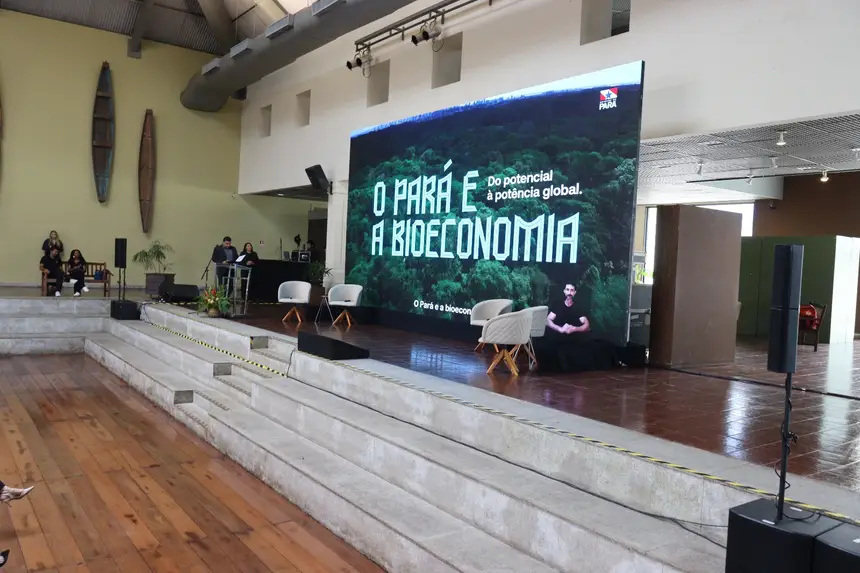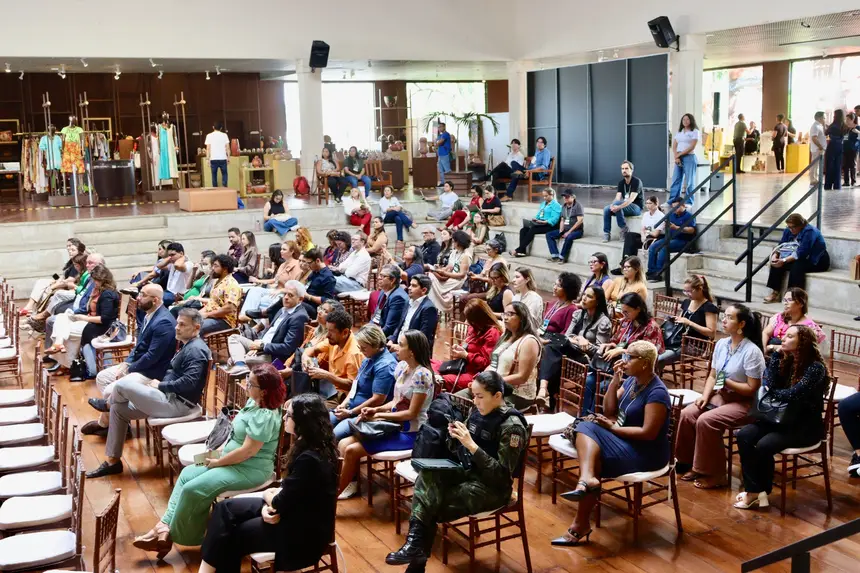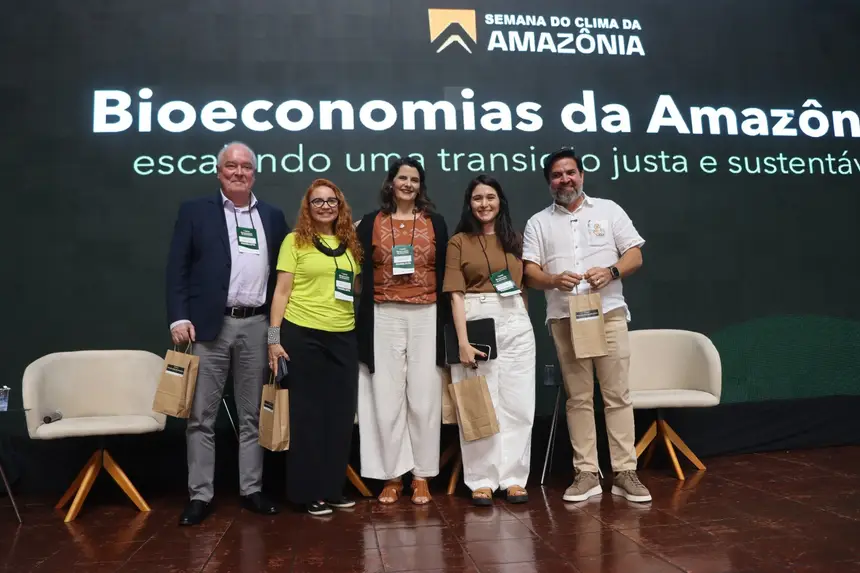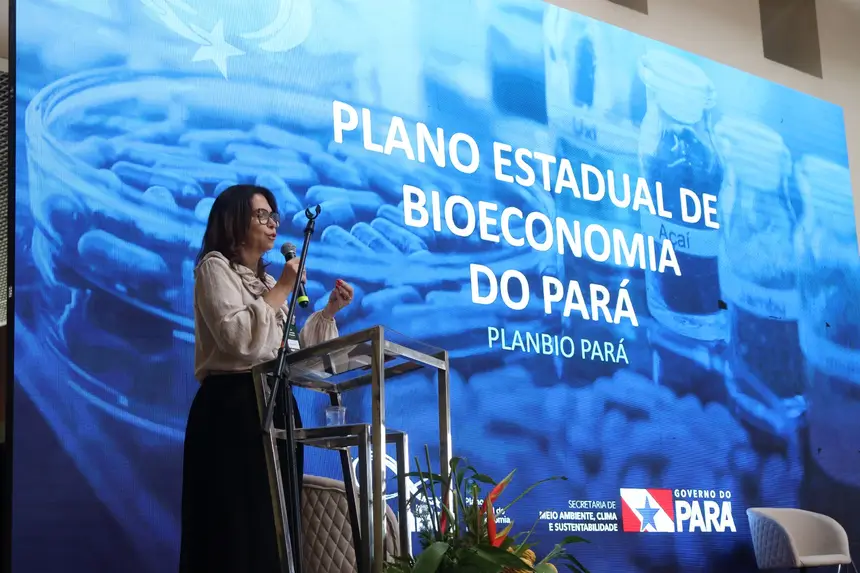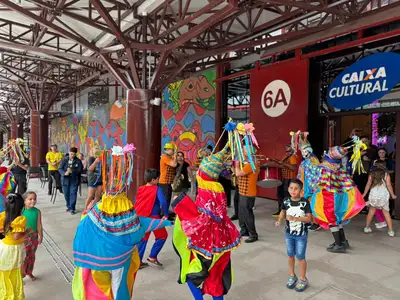Semas expands dialogue on bioeconomy in Pará at Amazon climate event
The meeting shows how the State is transforming into a center for bioeconomy actions through public policies and structuring projects, such as PlanBio
The event "Amazon Bioeconomies: scaling a fair and sustainable transition" debated this Wednesday (16), at the São José Liberto Space in Belém, environmental, economic, and social development, bringing together representatives of the Government of Pará, through the State Secretariat for the Environment, Climate and Sustainability (Semas), research institutions, the productive sector, and civil society organizations. The event addressed concrete and innovative solutions based on sustainability for the Amazon.
The meeting, which was part of the collaborative initiative "Amazon Climate Week", highlighted presentations from the Amazon Bioeconomy and Innovation Park, the Sociobioeconomy Center, as well as unprecedented studies and initiatives on the topic.
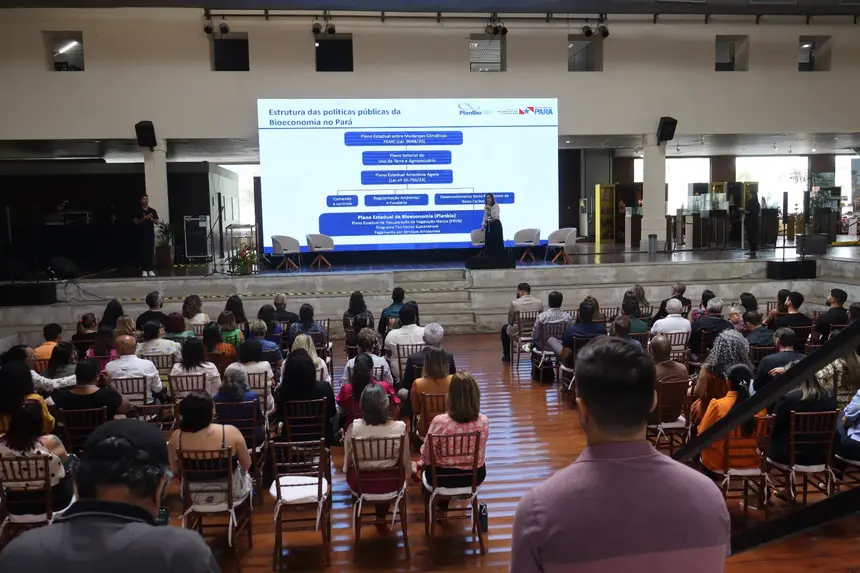
According to the Deputy Secretary of Bioeconomy at Semas, Camille Bemerguy, the agenda "is a recognition of the entire trajectory of the State, which in recent years has brought climate as a priority and central public policy agenda, and the understanding that climate and economy need to walk together if we want a more sustainable and just world."
Strategy - The program included panels on the construction of the State Bioeconomy Plan (PlanBio), considered the first in the country to be "collectively built with the different actors involved in the plan." The event aimed to show how the State has been structuring a development strategy based on bioeconomy as "an economic development that is fair, sustainable, and brings a new economic paradigm for Pará."
Data on extractive, industrial, technological bioeconomy, and bioindustry were also discussed, as well as the need to create fiscal policies to allow for its expansion.
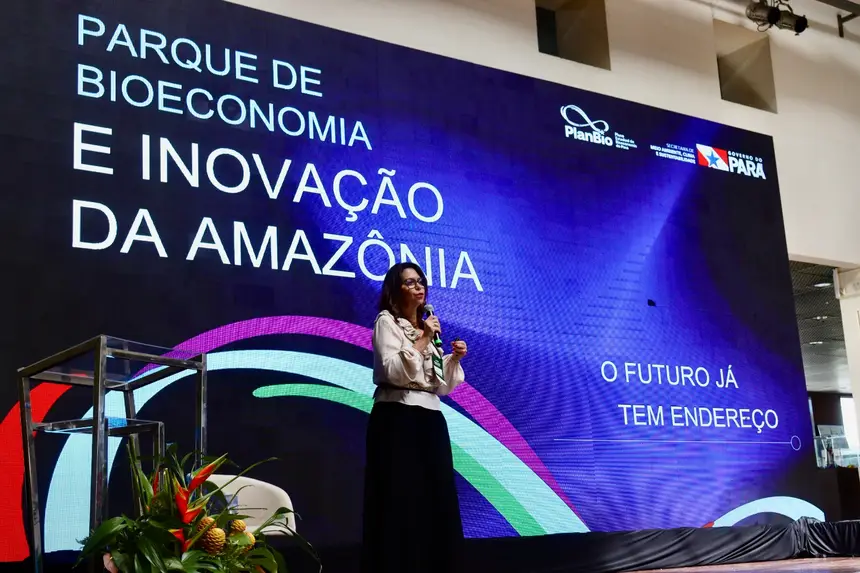
Transition - The Amazon Bioeconomy and Innovation Park was presented, described as a project that creates "an innovative environment for bioeconomy in the State of Pará, to ensure that this model transition is made in a poignant and transformative way." The Park will integrate an innovation center, laboratories, and spaces for startups, science, and technology.
Camille Bemerguy emphasized that the State's wealth in the field of bioeconomy makes it the "epicenter of bioeconomy in the Amazon and Brazil."
Karina Simão, a panelist and representative of the Brazilian Business Council for Sustainable Development (CEBDS), emphasized the importance of discussions around the topic. "We have been strongly active in the bioeconomy agenda because we understand that it is a common denominator among sectors, and can enable greener and more inclusive development. The Amazon is our only territorial agenda, which brings us even closer to the territory and local actors. Therefore, we have been approaching the Government of Pará, which already stands out in this agenda. We need to look at the available mechanisms and promote strategic partnerships between the private sector, government, communities, and science. The State Bioeconomy Plan of Pará was one of the pioneers in Brazil. It served as a reference for the national plan - many of the actions reflected there were inspired by the process led by Pará. It is essential that the private sector participates in the plan's update, so that when financing is needed, the solutions are already integrated with the market reality," she informed.
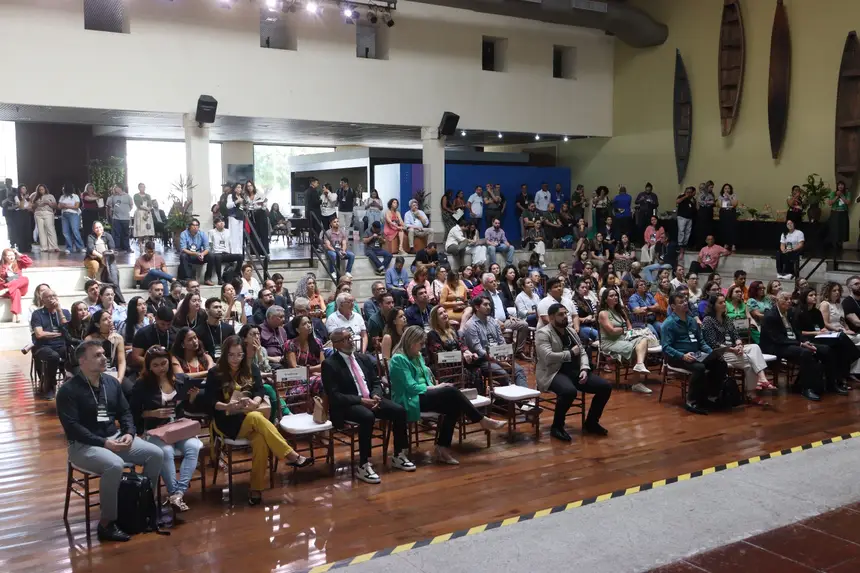
Rafaela Reis, a researcher and project coordinator at the Amazon Environmental Research Institute (Ipam), and a panelist at the event, explained that "the Institute is a great partner of the State. One of the panels presented was 'Bioeconomy in Data', an important moment to share the data we have on bioeconomy and the results of our project focused on bioindustry in the states of the Legal Amazon."
The event also featured a bio-business marketplace and the launch of a bioeconomy plan identification seal, which will serve to map initiatives aligned with the State's strategy. "Every time an action, a bio-business, is part of this logic established by PlanBio, it will have the seal that identifies it, ensuring transparency to the market that this is an action that is part of a bioeconomy strategy, which aligns with what the State wants for its economic and social transformation," reinforced Camille Bemerguy.
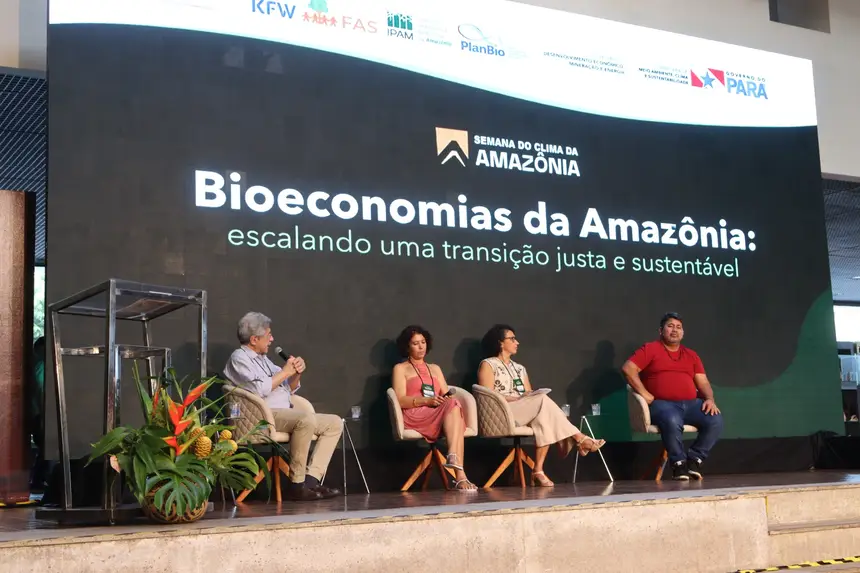
Investment - "Today, Fapespa (Amazon Foundation for Support of Studies and Research) executes, within PlanBio, 91 projects. This represents an investment of R$ 15.6 million in the last three years. In this sense, beyond the support for projects and startups, there are innovation actions in companies. Currently, we execute programs in partnership, which together total a budget availability of R$ 20.7 million for the birth of new technology-based companies, including some in bioeconomy," highlighted the panelist and Scientific Director of Fapespa, Deyvison Medrado.
Currently, PlanBio encompasses 122 actions executed by 18 secretariats, with a monitoring platform launched to ensure transparency. The goal is to promote climate justice with prosperity and economic transformation.
In addition to Semas, the State Secretariat for Racial Equality and Human Rights (Seirdh), the State Secretariat for Agricultural Development and Fisheries (Sedap), the State Secretariat for Economic Development, Mining and Energy (Sedeme), the State University of Pará (Uepa), the Pará Economic Development Company (Codec), the State Secretariat of Finance (Sefa), and the Technical Assistance and Rural Extension Company (Emater) were also represented. The event also included representatives from the Government of Rondônia, the Amazon Environmental Research Institute (Ipam), and the World Resources Institute (WRI).


